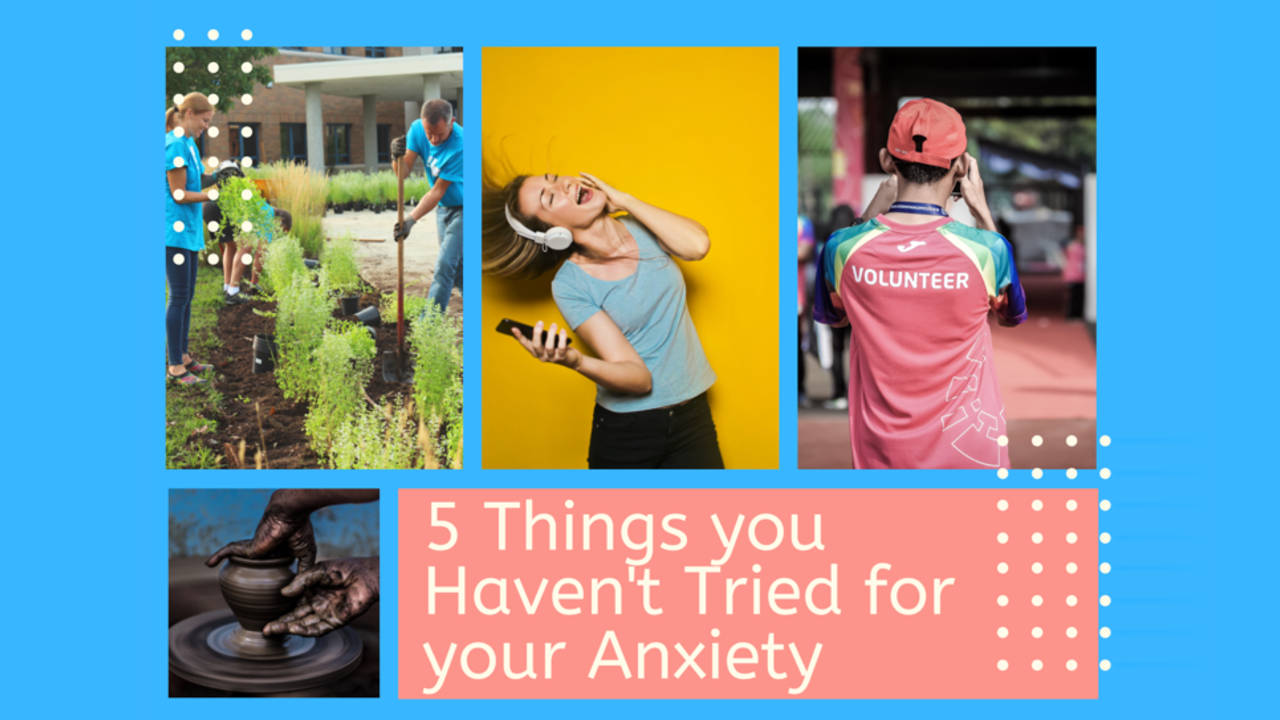5 Strategies You Haven't Tried to Tame Your Anxiety

Extreme stress, can be caused by several things like:
- A genuine fear of a physical threat
- The thought of being fired, being late for a plane (tangible near future events)
- Fuzzier stresses like the economy or politics or "something’s just off" with a relationship; things that are harder to put your finger on.
All of these can trigger the fight-or-flight response where bursts of chemicals carrying information and energy are released. Today we’ll talk aspects of anxiety that you might not be aware of.
1. You Have Six Seconds to Reverse an Emotion!
Emotions are neurohormones; they flow through the brain and body carrying messages with information that makes us hyper-alert mentally, and energy that prepares our bodies to deal with the situation or perceived threat. Whenever an emotion comes up, and it could be anxiety, anger, fear, etc, there is a burst of these chemicals that lasts 6 seconds - that’s the timeframe between when they are produced and absorbed back.
When we ruminate on something over and over, we escalate those feelings, and refuel those neurohormones, creating a feedback loop. So there is a huge opportunity in the 6 seconds to "name it to tame it", decide how to deal with it and the message it is trying to give you. An emotion, that chemical burst has the potential to last only 6 seconds. Deciphering the emotional messages, I have written a whole book about that called Emotional Advantage - you can check it out here.
2. Are you breathing right? Maybe not!
When fight, flight or freeze happens the body is preparing to defend itself. You can feel the difference – the heart is pounding, your breathing quickens, muscles tense – this is automatic. The good news is that there is one autonomic system we can influence and that’s breathing.
From yoga to your grandmother, from mindful apps to the Applewatch, everyone is telling you to stop and breath. But what if I were to tell you that most people are maybe going through the motions but breathing wrong – so they are not getting the full benefits?
In this culture, we’re taught to "suck in that gut," "stand up straight," etc, but to get maximum oxygen into the system we have to extend the abdomen outwards while inhaling and contract in the exhale – kids are taught to do this by putting an object like a rock or teddy bear on their bellies while they lie down, and on the inhale see it rise. Check out this short video on how to belly breathe here.
In addition, when anxious, most people start shallow chest breathing, breathing 12-16 rounds per minute. Slow breathing can quickly lower the heart rate, help ward off a panic attack or reduce acute anxiety. Some believe that slow breathing is more effective than deep breathing for anxiety. If you count “one, two, three” seconds on the inhale, “one, two” on the pause, “one, two, three” on the exhale, and “one, two” on the pause, you’ve completed a 10-second breath, a pace of six rounds per minute.
3. Do you have the courage to take a counterintuitive approach?
When you are anxious about a deadline or overwhelmed with the amount of work you have, taking a break is probably the last thing on your mind. Your brain is looping on all the pressure, and anxiety is mounting. An antidote is to force yourself to do an activity that both occupies other areas of your brain, and gets you into a state of flow, where your focus is on the immersive activity, not on yourself.
Good examples of this include:
- Rockclimbing
- Dancing,
- Yoga
- Painting
- Gardening
- Any sport or Art form
- Hiking with Friends
What works for you? Try it next time you're under pressure!
4. Focus on WE, not ME
Anxiety makes you focus internally. Another GREAT intervention is doing a service project to help another person or a cause. You get out of your own mind, connect with others and see yourself as making a difference. You can volunteer with people or animals, or reach out to check in on a friend or a loved one. Click here to find out local organizations in need of volunteers in your zip code!

5. Digital Detox
Research is increasingly showing that anxiety is linked to how often you’re on your devices. Take a digital detox, starting with a half hour in the morning and a half hour before bed, and increase from there. Better yet, try to build to a whole day unplugged like my friend Tiffany Shlain does once a week, and has been for a long time. She actually just wrote a book about it and the benefits for her and her family: 24/6: The Power of Unplugging One Day a Week.
We live in increasingly anxious times. Try to make a practice out of the ones that make sense (breathing, less device time), and next time you're anxious try out a new strategy (the 6 second rule, service to others, get into flow). Over time, I think you'll see that you are developing a less anxious lifestyle!
